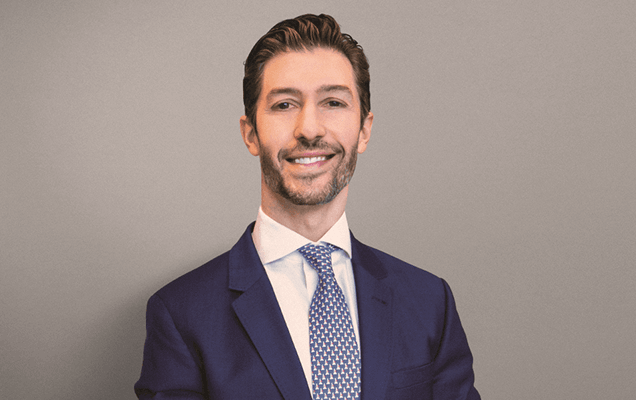Taking the time to learn more about your upcoming brain tumor surgery is a powerful way to play an active role in your treatment plan. The more you understand about your condition and the recovery process, the more at ease you can be as you move through treatment.
The following will address some common questions about benign brain tumors, treatment options and recovery following surgery. Because this information addresses benign brain tumors at a general level, your brain tumor doctor will address the unique details of your individual recovery process. However, having an overall idea of what to expect is a great starting point for the conversation at your next appointment.
What Is a Benign Brain Tumor?
If a tumor is benign, that means it does not invade the surrounding tissues or spread to other areas of the body. Benign tumors tend to grow slowly compared to cancers and often go undetected for many years. Examples of benign brain tumors include pituitary adenoma, acoustic neuroma and meningioma.
It’s important to understand that just because a tumor is benign, it does not mean that it is not causing any problems. A tumor is an excessive growth of cells that can press on other tissues, leading to problems and the symptoms you may be experiencing. This is why your doctor has recommended that you undergo treatment.
What Are Benign Brain Tumor Treatment Options?
Your treatment path will depend on a number of factors, including:
- The type of benign brain tumor you have
- Tumor size, location and proximity to other structures
- Your age
- Any complicating health factors you may have
Your doctor will take these factors into consideration when developing your treatment plan. Every patient will be slightly different, but you can expect your treatment plan to include at least one of the following options, though many people will be treated with a combination of them:
Surgery
Most benign brain tumors are treatable with surgery. Surgical resection of your tumor occurs in a hospital setting while you are under general anesthesia. The surgeon will access and remove all or part of your tumor, depending on what can be safely accomplished. Your procedure may also include a craniotomy, the removal of a small piece of skull, so your surgeon can reach the tumor.
Not all patients will require surgery or be good candidates for it. Your doctor may recommend surgery if your benign brain tumor is easy to access, if it is large and cannot be treated with other methods or if you are a younger patient.
Fractionated Radiotherapy
Fractionated radiotherapy delivers multiple doses of low-level radiation locally around the tumor in an effort to reduce the size of your tumor. It can be used in addition to surgery to eliminate any remaining tumor cells, or it may be used alone. Fractionated radiotherapy usually does not have a harmful effect on important normal structures within the brain, however, it may not be as effective as stereotactic radiosurgery in successfully treating tumors.
Stereotactic Radiosurgery
As an alternative to fractionated radiation therapy, stereotactic radiosurgery delivers a highly focused beam of radiation directly to your tumor, sparing the surrounding healthy tissues. As a result, your surgeon is able to eradicate any tumor cells with fewer side effects and fewer treatment sessions.
Like fractionated radiation therapy, stereotactic radiosurgery may be used as an adjunct therapy or as a first-line treatment, particularly if your tumor is small or in a difficult area or you are not a good surgical candidate because of complicating health conditions.
What Is Typical Benign Brain Tumor Surgery Recovery?
Because of your personal health factors and the differences between types of tumors, your benign brain tumor surgery recovery is going to be a very individual process. Generally speaking, you can have the following expectations:
- Any surgery will be performed in a hospital setting and require a stay of up to one week.
- During your recovery at home, you will be put on activity restrictions, which may include driving. It is important to arrange for someone to help you with errands, childcare and household chores, especially during the first two weeks.
- Most patients are able to resume normal activity levels and return to work in six to 12 weeks.
- Following your surgery, you may require adjunct therapy, such as radiation.
- Some patients will require physical therapy, speech therapy or assistance from other specialists.
Why Are Follow-up Visits Important?
Your doctor will develop a schedule of follow-up visits, which will include physical exams and occasional imaging. It is vital that you keep up with your health and adhere to this follow-up schedule. Though rare, some benign brain tumors can return following surgery, and it is important that your doctor detect any recurrence as soon as possible. However, this is impossible if you do not keep up with your follow-up visits.
Continue the Conversation
Because this has been a general overview of benign brain tumor surgery recovery, it’s essential to discuss your individual condition with your personal doctor. He or she will be able to discuss what you have learned here in the context of your specific case, enhancing its relevance to your situation. Continue arming yourself with knowledge as you travel the road to recovery, and you will find you have greater peace of mind along the way.

About Dr. Paul R. Gigante
Dr. Paul Gigante is an accomplished neurosurgeon in Central Jersey and a proud member of Neurosurgeons of New Jersey, practicing out of their Livingston office located conveniently on South Orange Avenue. He is recognized as a leading spine surgeon for both minimally invasive and complex procedures. Dr. Gigante is a graduate of Harvard Medical School and completed his fellowship at Stanford University in functional neurosurgery. His specialties are deep brain stimulation for Parkinson’s Disease and other nervous system disorders, spinal cord stimulation for chronic pain disorders, and surgical treatments for chronic nerve pain conditions. He also specializes in brain tumor surgeries. Dr. Paul Gigante is currently accepting new patients.
Please call today to schedule a consultation with me. (551) 284-3265
Request a consultation with Dr. Gigante







